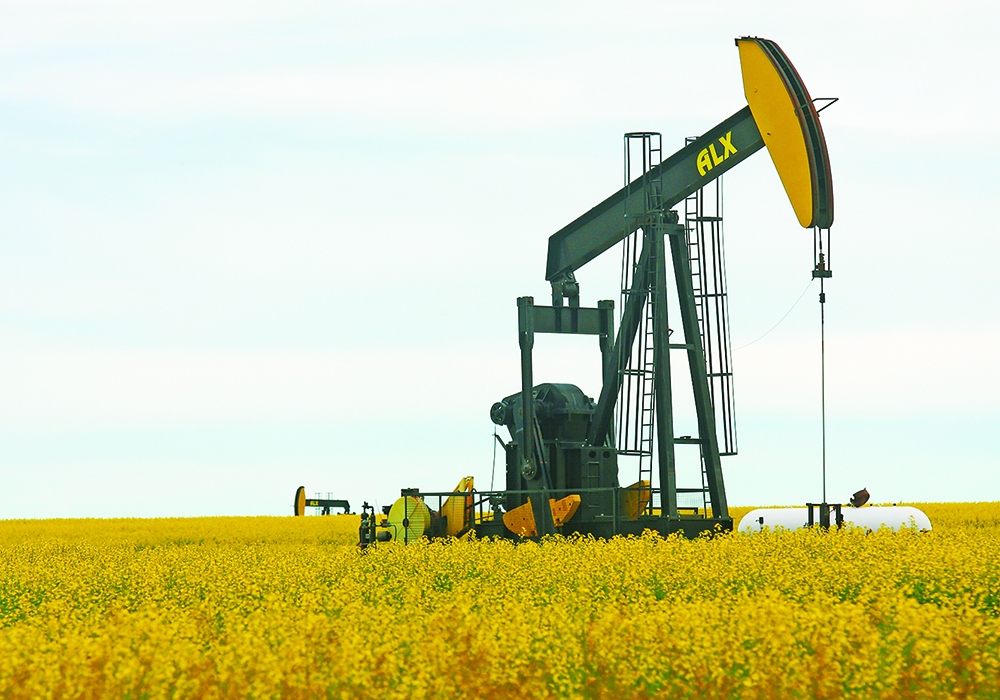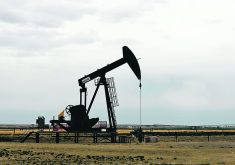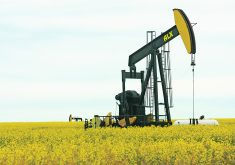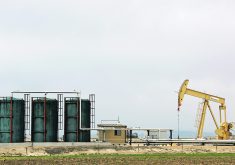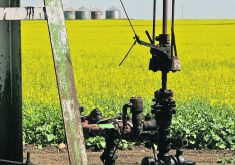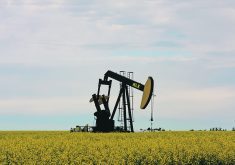Alta. rural municipalities say unpaid tax problem began during downturn but did not improve when better times returned
Unpaid municipal taxes by oil and gas companies have been a nagging issue for Alberta rural municipalities trying to pay for rising infrastructure costs while an estimated $253 million remains outstanding.
That amounts to an increase in unpaid municipal property taxes of more than 200 percent since 2018, according to the Rural Municipalities of Alberta.
The organization said the situation is unfair in light of a return of profitability in the oil and gas industry.
The Alberta Liabilities Disclosure Project’s (ALDP) Regan Boychuk called the situation a “tax strike” by corporations that continues despite the reversal of fortunes in the oil and gas sector over the last two years.
Read Also

University of Manitoba hires potato researcher
A new research chair position at the University of Manitoba will tackle sustainability in the potato industry.
ALDP has advocated for more regulation of the hydrocarbon sector in paying its bills, especially with cleaning up abandoned and orphaned wells in the province.
Tax recovery for municipalities has never been an issue because the option of enforcing payment through auctioning off a property worth more than the amount owed is a worst-case that is always available.
“Until it came to oil and gas in 2019,” said Boychuk. “Their sites are worthless. They are less than worthless. They have a negative value because they cost hundreds of thousands of dollars to clean up.”
While many people express fury privately, Boychuk said few are willing to publicly complain because many rural municipalities are still garnering tax income from the industry.
“This is an existential crisis. (Municipalities) are not allowed to run deficits. They have cut services and raised taxes but the problem is not going anywhere,” he said.
The exact dollar amount owed to municipalities is unclear because estimates were last tallied in 2018.
According to a statement by the Alberta government, those are the most comprehensive numbers available, although the province launched a survey in July this year.
Results of that survey are expected to be presented to the government soon with an analysis expected later in the fall, according to Alberta Municipal Affairs spokesperson Scott Johnston.
No date was provided as to when that data might become public.
In December 2021, Alberta passed legislation allowing municipalities to place a lien on oil and gas properties to allow them to gain priority over other creditors.
“Municipalities have begun exploring the special lien provision to encourage oil and gas companies to pay their outstanding property taxes,” said Johnston in a statement.
“The government recently approved an Alberta Community Partnership grant to the Rural Municipalities of Alberta to develop and deliver educational material for members specific to implementing special liens.”
Johnston also stated this is the first year the legislation has been in place. The government is watching to see if that, along with improved profits in the energy sector, helps resolve the situation.
Boychuk is skeptical that will be the case.
“Every company that was circling the toilet is still circling the toilet,” he said. “They might have some walking around money today but their fate is no less certain.”
Boychuk estimated the amount owed is likely far higher than the RMA figure, closer to the $500 million range. He also highlighted that current Alberta Premier Jason Kenney was the former head of the Canadian Taxpayers Federation.
“But he doesn’t seem to have the slightest problem with half-a-billion dollars in unpaid taxes,” said Boychuk. “He’s offered no solutions to rural politicians.”
He is also critical of the Alberta Energy Regulator’s actions in recent years, particularly with the public body’s move to stop publishing data regarding the solvency of oil and gas companies in 2019.
“Just as the tax strike started, our Alberta Energy Regulator, the public officials supposedly keeping a leash on the industry, stopped publicly reporting the solvency of 800 licensees in Alberta,” said Boychuk. “So, we don’t know the risk each of these companies face and we can’t tell who is circling the drain.”
The Western Producer reached out to RMA for comment on the situation but had not heard back as of publication deadline.


